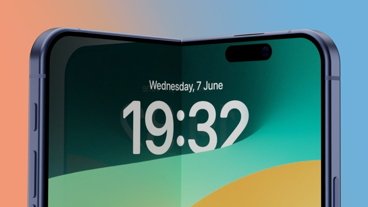The New York Times reports that Amazon has acquired New York-based Touchco, a small start-up specializing in touchscreen technology. The company's interpolating force-sensitive resistance technology allows for flexible, transparent, pressure-sensitive touch-screens that could cost as little as $10 a square foot.
As a comparison, the capitative touch-screens in the iPhone, iPod Touch, and iPad are more expensive and cannot detect the unlimited amount of simultaneous touch points that Touchco's technology allows.
Touchco's technology can reportedly distinguish between the differing pressures produced by a finger or stylus.
According to the Times, Touchco consists of around six employees and Amazon plans on incorporating both the new personnel and technology into its Kindle hardware division, named Lab126, which is located in Cupertino, Calif. - also home to Apple.
Apple's introduction of the iPad in January has already had an effect on Amazon's Kindle. Two major publishers have used Apple's content deals as leverage to negotiate new pricing agreements with the bookseller.
When Apple introduced the iPad last week, it also unveiled the new iBooks application for reading e-books. The software includes the iBookstore, which allows users to purchase content that will be displayed on their virtual bookshelf. Apple announced deals with five major book partners, including Macmillan and HarperCollins.
Amazon's purchase of Touchco can be thought of as a direct response to Apple's iPad, and the technology acquired could be included in the next iteration of its Kindle e-reader.
The Times writes, "Amazon has been looking to compete with Apple on other fronts as well. Last month, it announced plans for a Kindle applications store and an effort to get developers to create the same breadth of programs for the Kindle that they have created for the iPhone and, soon, the iPad."
 Brian Garner
Brian Garner







 Christine McKee
Christine McKee
 Charles Martin
Charles Martin
 Mike Wuerthele
Mike Wuerthele
 Marko Zivkovic
Marko Zivkovic
 Malcolm Owen
Malcolm Owen


 William Gallagher
William Gallagher
-m.jpg)






73 Comments
Wow.
That's seems like the type of technology that Apple would have bought up pretty quickly, unless they already have similar technology at their disposal that they haven't shown yet in their products.
Sounds good and much needed for Kindle to survive. But does an eBook reader need unlimited touch points? I suppose low cost is a big draw here, assuming it works as well without fuzzing out the display like Sony's touch-based eBook readers do.
So those six employees are going to move from New York to Cupertino and work for....Amazon?
For Amazon's sake, they better have some strong incentives for those people to stay in their current jobs.
That is so interesting ... can't wait to see what amazon has in store
Hahahahahaha!